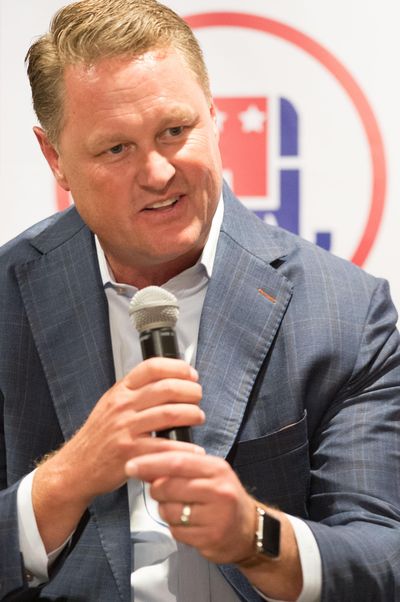Ahlquist will show Idaho the money

Idaho gubernatorial candidate Tommy Ahlquist plans to release additional financial information after questions were raised regarding his initial disclosure of business interests.
Ahlquist voluntarily released his personal financial information last week, including a list of 25 firms in which he has an ownership interest and that provide at least $5,000 in income per year.
However, that list didn’t include a handful of limited liability companies that are subsidiaries of the original 25 parent companies.
After the Lewiston Tribune and Associated Press raised questions about the completeness of the disclosure, senior adviser Todd Cranney said Ahlquist will add the subsidiaries to the list.
“The only reason we didn’t include them was because we felt they were covered by the parent companies,” Cranney said. “We’re for more transparency, and we viewed this as a good start.”
Idaho is one of only two states that don’t require elected officials or candidates to disclose any personal financial information. Most states have at least minimal requirements, primarily so voters and constituents can determine if officials have a conflict of interest.
“We consider our (disclosure form) to be a conflict of interest form,” said Kim Bradford, communications director for the Washington State Public Disclosure Commission. “It’s a way for the public to judge whether there are conflicts. It’s also a reminder for the officials about where they need to be careful and possibly recuse themselves.”
Among other requirements, Washington officials must disclose any business in which they are officers or directors or in which they have at least a 10 percent ownership stake. That includes subsidiaries, Bradford said, if the 10 percent threshold is met.
Ahlquist has proposed that elected officials identify their employer and job titles – for themselves and their spouse – as well as any source of income greater than $5,000, any investment worth more than $5,000, any business or real property they own, and any boards on which they serve.
“Requiring officials to disclose this information will fill a gaping hole that has persisted in Idaho’s ethic laws for far too long,” he said in a news release last week.
Questions regarding the completeness of Ahlquist’s initial disclosure came about after a review of the Idaho secretary of state’s online business filings. The database includes at least 15 entities for which Ahlquist is listed as a registered agent and/or owner or director, but which weren’t part of his original disclosure.
A registered agent is someone who can receive legal documents on behalf of a corporation, in the event of a lawsuit. They don’t necessarily have an ownership interest in the firm.
According to Cranney, the 15 entities include companies in which Ahlquist has no ownership interest, or they’re limited liability corporations that either weren’t active or were subsidiaries of the parent firms that were previously disclosed.
One of the entities was Gardner Ahlquist Property Management, which incurred a $14,524 federal tax lien in 2012 for failing to pay the company’s share of employee Social Security and Medicare taxes. The lien was removed six months later.
Cranney said the lien resulted from “an inadvertent accounting error” due to overlapping accountants.
“Once the error was discovered the taxes were paid immediately and the issue was resolved,” he said.
Calls for greater transparency have not been a notable part of the campaigns of Lt. Gov. Brad Little or Rep. Raul Labrador, Ahlquist’s two main opponents in next year’s Republican primary.
Little’s campaign has indicated he’s open to voluntarily releasing his personal financial information and plans to do so “in the coming weeks.” And as a member of Congress, Labrador already is required to release his financial information.
The federal disclosure requirements are much broader than Ahlquist’s proposed rules. For example, they include more detailed information about the value of any investments and assets, as well as information regarding liabilities.
At the legislative level, however, states typically don’t require candidates or officials to disclose liabilities. According to the National Conference of State Legislatures, none of the states adjacent to Idaho do.
Whether the Idaho Legislature wants to go there is something lawmakers could debate next session. An interim working group has been reviewing possible reforms to the state’s campaign disclosure requirements, including personal financial disclosure rules that are similar to what Ahlquist has proposed.
“We welcome the scrutiny and conversation about this, and look forward to working with the Legislature to strengthen (disclosure requirements) in any way that makes sense,” Cranney said.